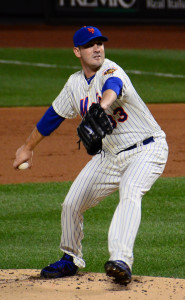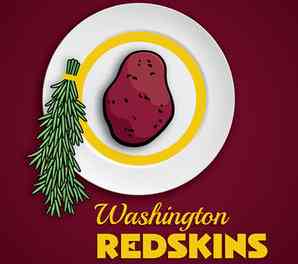Obviously there is something wrong with Matt Harvey, so is it too soon to drop him? As of right now Josh Tomlin, Drew Pomeranz and Steven Wright are available.
My Pitchers are Bumgardner, Syndergaard, Harvey, Stroman, Vince Velasquez, Smyly and Wacha.
“Hardly Harvey So Far”
 Your question came in as I was reading Eno Sarris’s excellent take on Harvey at FanGraphs on Friday.
Your question came in as I was reading Eno Sarris’s excellent take on Harvey at FanGraphs on Friday.
Eno takes a look at Harvey’s velocity, movement and command in the past, compares them to his recent struggles, and concludes, um, that if he pitches a little better he might get much better results. If that sounds like weak analysis, it isn’t at all. It’s nuanced and precise about a process that is nuanced but with a broad range of variable outcomes, not all of which actually have any precise cause.
That, I know, doesn’t help much. You have a floundering pitcher (with a rich and productive history) who is hurting your team. So you need to know whether you should make a move now. How likely is Harvey to bounce back, and when?
Here are a few things I know.
The Mets were concerned enough to consider sending Harvey to the minors, push back his next start, or take everything out of his locker and burn it. Really!
John Smoltz reported last week that he’d studied the issue of young pitchers who appear in World Series, and discovered that many suffer a fall off the next season. Now, there are some issues with that. Harvey isn’t that young, for one, and one would assume young pitchers are generally pitching in the World Series because they had a better than average year. As we know, pitchers who have had a better than average (for them) year will usually have a not as good year the next year. This is what is meant by the expression regression to the mean. So, I’m not sure about Smoltz’s study, but I am sure that Harvey was on an innings limit last year for a reason, that for a different reason he blew through it, and as Eno points out, his velocity is down this year (at least some of the time, though Eno also points out that you might expect that to happen to a pitcher who is entering his 27th year).
Pitchers spend their careers making adjustments as their physical abilities change. It’s tempting for us to look and see consistency as a virtue, but in most cases pitchers succeed with consistent performance, not necessarily consistent tools. Presumably, Harvey is working hard now to adapt to these small changes (he has a similar issue with his slider, Eno notes), and has the skills and mindset to do so.
Given that, it seems to me there’s a pretty fair chance he’s going to be better than he’s been thus far. And while his ERA has been a disaster thus far, some of that appears to be a product of an elevated BABIP and diminished LOB rate. If his actual ERA were the same as his FIP (3.62) or xFIP (3.84) you probably would be more patient with him. His failures, in that case, wouldn’t seem quite so dire.
Not so long ago I looked at how well regarded pitchers performed after a slow start. The upshot was that they generally performed better, and some actually perform as well as was expected of them in the preseason, after they get past the rough patch. So there is hope.
The upshot from all this? I kind of wish I owned Matt Harvey.


